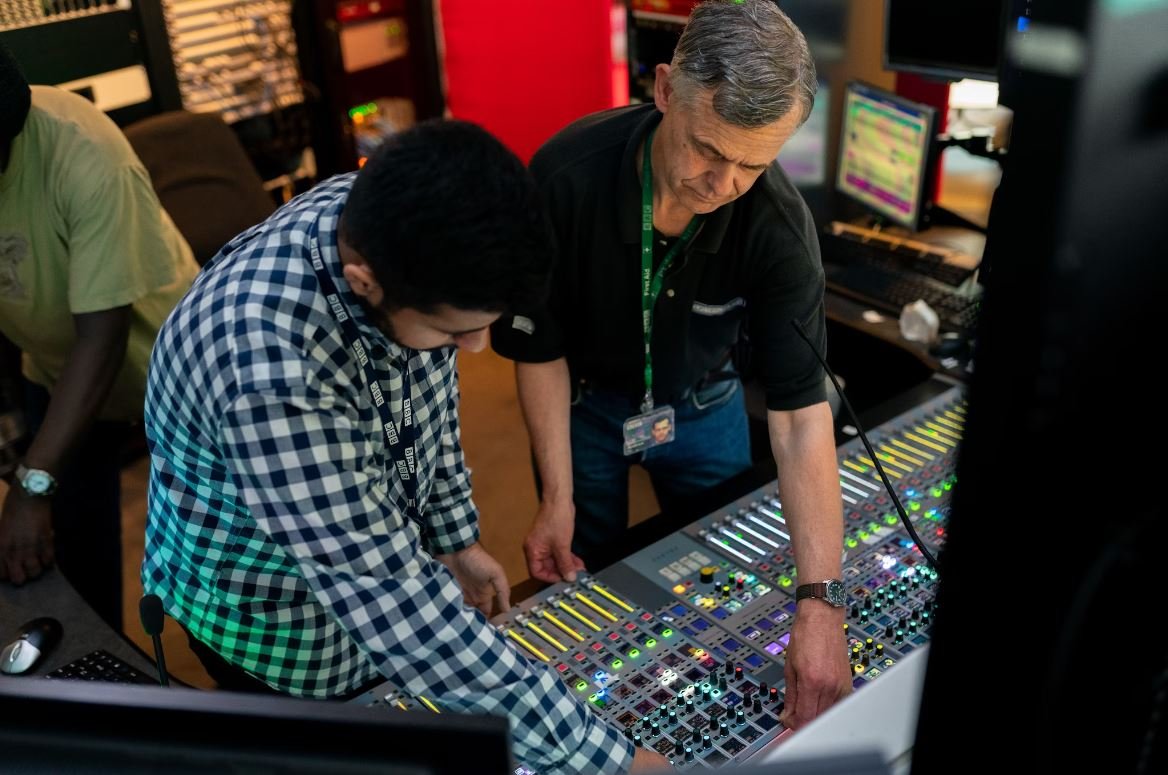AI Clone Your Voice
Advancements in artificial intelligence (AI) have reached new heights, enabling the creation of AI systems capable of cloning human voices with astonishing accuracy. Using deep learning algorithms and vast amounts of voice training data, these AI models can reproduce the unique nuances, tones, and characteristics of someone’s voice, leading to both exciting possibilities and potential ethical concerns.
Key Takeaways
- AI is now able to clone human voices with remarkable precision.
- Deep learning algorithms and extensive voice training data enable the AI to accurately reproduce voice characteristics.
- AI voice cloning raises various ethical considerations.
The Mechanics Behind AI Voice Cloning
AI voice cloning systems, such as Tacotron 2 and WaveNet, use complex deep learning architectures to analyze voice samples, extract relevant acoustic features, and build a unique representation of the user’s voice. These systems then generate new audio waveforms that mimic the original voice, resulting in astonishingly realistic voice outputs.
With the help of deep learning algorithms, AI voice cloning models learn to capture the subtleties and nuances of human speech patterns.
The Ethical Implications
While AI voice cloning brings exciting possibilities, it also raises important ethical concerns. The ability to recreate someone’s voice with just a few minutes of audio recording raises the potential for misuse, impersonation, or unauthorized use of someone’s voice for malicious purposes. Additionally, concerns regarding privacy and consent arise when considering the collection and usage of voice data for training these AI systems.
AI voice cloning technology necessitates careful considerations of privacy, consent, and potential misuse of recreated voices.
Data Privacy and Consent
As AI voice cloning relies on large amounts of voice data, the issue of data privacy and consent becomes paramount. Companies must obtain explicit consent from individuals before using their voices for training AI models. Additionally, strong security measures should be implemented to protect voice data from unauthorized access or breaches.
Here is an example of a consent form that could be used:
| Consent Form |
|---|
| I, [Name], consent to the use of my voice recordings for the purpose of training AI voice cloning models. I understand that my voice may be replicated and used in various applications and I knowingly provide my consent for this purpose. |
Implementing Regulations and Safeguards
In response to the ethical concerns surrounding AI voice cloning, regulations and safeguards are being developed to mitigate potential risks. These measures involve enforcing stricter guidelines on the usage and storage of voice data, ensuring transparent disclosures, and implementing mechanisms that allow individuals to have control over their voice data.
Some key initiatives include:
- Introduction of legislation requiring explicit consent for training AI models using personal voice recordings.
- Mandating clear disclosure of voice data usage and application limitations.
- Development of mechanisms for voice data deletion upon request.
Conclusion
AI voice cloning represents a remarkable technological advancement with both exciting possibilities and significant ethical considerations. As the technology continues to evolve, it is crucial to address the ethical challenges by implementing regulations, safeguards, and transparent practices to protect individuals’ privacy, consent, and control over their own voices.
Common Misconceptions
1. AI Clones Can Perfectly Replicate Your Voice
One common misconception people have about AI cloning technology is that it can perfectly replicate your voice. While AI has made significant advancements in voice cloning, it is still not capable of perfectly mimicking every aspect of your voice. There are subtle nuances and characteristics that make each person’s voice unique, and AI technology has not yet reached a level where it can replicate these elements flawlessly.
- AI voice clones can sound very similar to the original voice, but there may still be detectable differences.
- The effectiveness of AI voice cloning depends on the quality and quantity of voice data available for training the AI model.
- Vocal idiosyncrasies, intonation patterns, and emotional nuances may not be accurately replicated by AI cloning.
2. AI Clones Can Be Used to Easily Impersonate Others
Another misconception is that AI clones can be used to easily impersonate others, leading to potential fraud or deceptive activities. While it is true that AI cloning technology can generate synthesized voices that imitate someone’s speech patterns, it is not as simple as it may seem. Most reputable AI voice cloning services require consent from the individuals whose voices are being cloned, and the usage of these clones is often strictly regulated.
- Legitimate AI cloning services usually have ethical guidelines in place to prevent misuse of the technology.
- AI clone usage for deceptive purposes, such as creating fake voice recordings for fraud, is illegal and punishable.
- Voice biometrics and other detection technologies are being developed to identify AI-generated voices and prevent impersonation.
3. AI Voice Clones Can Reproduce Any Language or Accent Perfectly
Many people mistakenly believe that AI voice clones can reproduce any language or accent perfectly. While AI technology has made impressive strides in multilingual voice cloning, there are still limitations to its capabilities. The accuracy and naturalness of an AI clone’s accent or pronunciation heavily depend on the data used for training and the sophistication of the underlying AI model.
- AI voice cloning tends to be more accurate and natural for languages and accents that have abundant training data available.
- Accurately replicating certain regional accents or dialects may be challenging for AI due to the scarcity of training data.
- Improvements are constantly being made to AI models, expanding their ability to handle a greater variety of languages and accents.
4. AI Cloning Is a Highly Invasive Technology
There is a misconception that AI cloning is a highly invasive technology that poses a significant threat to personal privacy. While it is essential to address potential privacy concerns associated with voice cloning, not all AI cloning technologies have an inherently invasive nature. Responsible AI cloning platforms prioritize data privacy and provide controls to ensure that individuals have control over the usage of their voice data.
- Reputable AI platforms allow users to easily delete their voice data if they no longer wish to use the service.
- Privacy regulations, such as GDPR, impose strict rules on handling personal voice data, protecting users’ privacy rights.
- When used ethically and responsibly, AI cloning can offer useful applications without compromising personal privacy.
5. AI Clones Can Possess Consciousness and Psychological Traits
Some people have an erroneous belief that AI clones created using voice cloning technology can possess consciousness, emotions, or psychological traits of the original voice owner. AI voice clones are a product of algorithms and machine learning models, and they lack the capacity for true consciousness or emotions.
- AI clones are purely synthetic and do not possess subjective experiences or the ability to think on their own.
- AI cloning is focused on replicating the vocal characteristics of a person’s voice, not their thoughts, personality, or psychological traits.
- Popular culture often exaggerates AI capabilities, leading to unrealistic expectations regarding the psychological aspects of AI clones.
The Rise of AI Voice Cloning
Artificial Intelligence (AI) has made significant progress in voice cloning technology. With the ability to mimic human speech patterns and tones, AI voice cloning is revolutionizing various industries. In this article, we will explore ten captivating aspects of AI clone your voice technology.
Venturing into Hollywood
Hollywood is embracing AI voice cloning technology to recreate the voices of legendary actors, making it possible for them to star in new movies even after their passing. For instance, AI voice cloning was used to replicate the voice of James Dean in a recent film.
Saving Vanishing Languages
AI voice cloning has the potential to preserve endangered languages. By capturing the unique tonal intricacies and pronunciations, AI systems can replicate the voices of native speakers, ensuring a lasting record of their linguistic heritage.
Disrupting the Gaming Industry
AI voice cloning is transforming the gaming industry by creating more immersive and interactive experiences. Game developers can use AI to generate realistic voiceovers for characters, enhancing the gameplay and bringing virtual worlds to life.
Breaking Language Barriers
A truly global communication landscape is within reach, thanks to AI voice cloning. Language barriers can be overcome as AI systems enable real-time translation of spoken words, with the translated voice sounding like the speaker’s own voice.
Empowering Accessibility
AI voice cloning is empowering individuals with disabilities, especially those with speech impairments. By capturing the unique voice characteristics, AI technology allows people to generate a synthetic voice that closely resembles their own natural voice.
Revolutionizing Audiobooks
AI voice cloning has revolutionized the audiobook industry. With the ability to generate synthetic voices that sound just like famous narrators, AI systems can produce audiobooks quickly and cost-effectively, expanding the availability of immersive literary experiences.
Fighting Fraud
AI voice cloning can help combat fraud by identifying voice impersonations. Using unique voice characteristics, AI systems can detect whether a voice is genuine or a clone, improving security and preventing fraudulent activities.
Music Industry’s New Frontier
The music industry is embracing AI voice cloning techniques to introduce a fresh wave of creativity. AI systems can imitate the singing voices of popular artists, enabling the production of new songs that merge different musical genres and vocal styles.
Preserving Vocal Memories
AI voice cloning technology allows individuals to create lasting vocal memories for their loved ones. By recording and preserving their voices, AI systems can generate synthetic voices that capture the true essence of an individual, fostering emotional connections.
In conclusion, AI voice cloning is revolutionizing various aspects of our lives, from entertainment and communication to accessibility and creativity. With its ability to replicate human voices with astounding accuracy, AI technology is poised to shape the future of voice-based interactions and preserve vocal legacies.
Frequently Asked Questions
What is AI Clone Your Voice?
AI Clone Your Voice is a cutting-edge technology that uses artificial intelligence algorithms to replicate and mimic your voice. It allows you to create high-quality voice replicas for a variety of applications, including voice-overs, dubbing, virtual assistants, and more.
How does AI Clone Your Voice work?
AI Clone Your Voice uses deep learning techniques to analyze and learn from a sample of your voice. It captures the unique characteristics and nuances of your voice and then generates a synthetic voice model that closely resembles your natural voice.
Can AI Clone Your Voice replicate any voice?
While AI Clone Your Voice can generate highly accurate voice replicas, there are certain limitations. The quality of the replica depends on the quality of the input voice sample, and some voices may be more challenging to replicate than others. However, the software continually improves with more training data and advancements in AI technology.
What can AI Clone Your Voice be used for?
AI Clone Your Voice has a wide range of applications. It can be used in voice-overs for movies, commercials, and video games, enhancing the user experience of virtual assistants and chatbots, personalizing audiobooks, creating voice-based content, and more. It offers endless possibilities for creativity and innovation.
Is AI Clone Your Voice legal to use?
The legality of using AI Clone Your Voice depends on the jurisdiction and the intended use of the voice replicas. It is essential to comply with copyright laws, privacy rights, and obtain necessary permissions if the replicas are to be used for commercial purposes or if they involve someone else’s voice without their consent.
Is AI Clone Your Voice safe and secure?
AI Clone Your Voice prioritizes user privacy and data security. As with any AI technology, it is vital to ensure that the software provider implements strong security measures to protect user data from unauthorized access or misuse.
How can I train AI Clone Your Voice to replicate my voice accurately?
To train AI Clone Your Voice, you need to provide an initial voice sample. The sample should be of good quality, recorded in a quiet environment, and consist of various speech patterns. The software will use this sample to train the AI model, and the more diverse and extensive the sample, the better the replication.
Can AI Clone Your Voice be used for deceptive purposes?
AI Clone Your Voice should be used responsibly and ethically. Using voice replicas for deceptive purposes, such as creating deepfake content or impersonating others, is not only unethical but may also violate laws and regulations. Users should respect the rights and privacy of others.
What are the system requirements for AI Clone Your Voice?
The specific system requirements may vary depending on the software provider, but generally, AI Clone Your Voice requires a reasonably powerful computer with sufficient processing power, memory, and storage. It may also require an internet connection for training the AI model and accessing updates.
Are there any limitations or drawbacks to using AI Clone Your Voice?
While AI Clone Your Voice offers remarkable capabilities, it is essential to understand its limitations. The generated voice replicas may not perfectly match the original voice in all scenarios, and certain nuances or emotions may be challenging to replicate accurately. Additionally, the technology is continuously evolving, and software updates may be required to improve the results.



